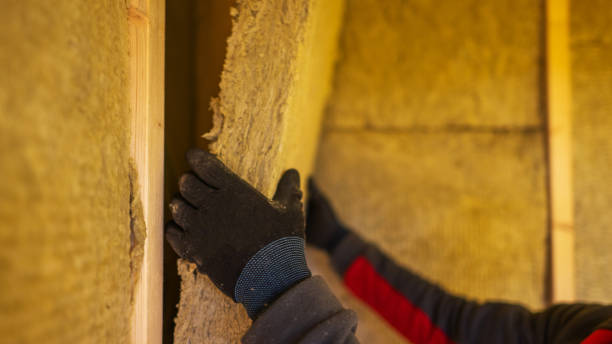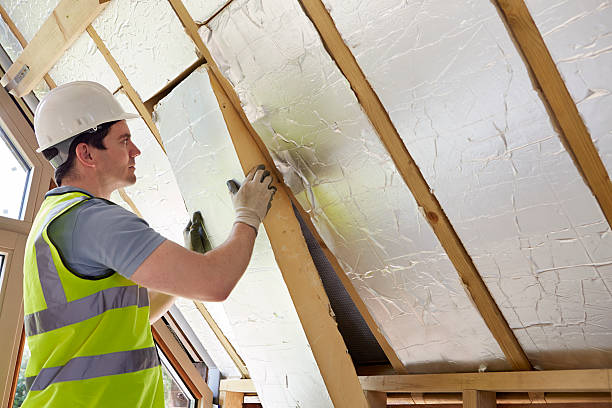Hot Insulation vs Cold Insulation: Understanding the Differences and Applications
Discover the essential differences between hot insulation and cold insulation with FUNAS. Our comprehensive guide explores their unique applications, benefits, and crucial roles in energy efficiency and safety. Whether you’re insulating pipes or protecting structures, understanding these insulation types ensures optimal performance. Trust FUNAS for insights on selecting the right solution for your needs.
Introduction
What is Hot Insulation?

Applications of Hot Insulation
What is Cold Insulation?

Uses of Cold Insulation
Hot Insulation vs Cold Insulation: Key Differences
| Feature | Hot Insulation | Cold Insulation |
| Purpose | Prevents heat loss and protects from high temperatures. | Prevents heat entry and maintains low temperatures. |
| Materials | Mineral wool, calcium silicate, ceramic fiber. | Foam, fiberglass, elastomeric rubber. |
| Temperature Range | Typically used in temperatures above 100°C (212°F). | Used in temperatures below 0°C (32°F). |
| Applications | Boilers, piping systems, furnaces, HVAC systems. | Refrigeration units, cold storage, cryogenics. |
| Energy Efficiency | Enhances energy efficiency by minimizing heat loss. | Prevents energy loss by blocking heat from entering. |
Why is Choosing the Right Insulation Important?
Conclusion
FAQs

7 Dangerous Mistakes to Avoid When Selecting insulating materials for Your Car (2026 Guide)

Polyurethane Foam 2026: Guide to HFO Compliance & Performance

The Ultimate 2026 Rock Wool Bible: Why It Beats Fiberglass Every Single Time [Full Comparison]

Why Glass Wool is the Secret to a 40% Lower Energy Bill: An Expert Deep Dive
FAQ
How to start a consultation?
You can contact us through our website, phone, or email. We will arrange a professional staff to discuss your needs about best thermal insulator and how we can help you.
Can your insulation products be customized?
Yes, we offer customized solutions for insulation material wholesale to meet the specifications of your project, including custom specifications, sizes, foils and adhesives, colors, etc.
How do I choose the right insulation for my project?
Our team can help you choose the best material for heat insulation based on your specific needs, such as thermal resistance, acoustic properties, and environmental conditions.
service
What is your shipping and delivery process like?
We offer reliable logistics services for insulation material wholesale, both domestically and internationally. Our team ensures secure packaging, timely shipping, and real-time tracking so that your order reaches you in perfect condition and on schedule.
You might also like

Wholesale Roof And Wall Thermal Heat Insulation 50mm Thickness Aluminum Foil Fiberglass Insulation Panel Board Glass Wool Price
Glass wool is the molten glass fiber, the formation of cotton-like material, chemical composition belongs to the glass category, is a kind of inorganic fiber. With good molding, small volume density, thermal conductivity both, thermal insulation, sound absorption performance is good, corrosion resistance, chemical stability and so on.

Wholesale blue Rubber-plastic Board Rubber foam panel sheet

Blue Rubber-plastic Tube Rubber foam pipe wholesale

Wholesale Perfect Fire Resistant Performance High Strength Acoustic Mineral Wool Insulation Rock Wool Roll Panel Plain Slab
Rock wool, that is, a kind of exterior insulation material. When the market share of 90% of the organic thermal insulation materials in the stagnant wait-and-see, as a fire rating of A- class exterior insulation inorganic material rock wool has ushered in an unprecedented market opportunity.
Leave a message
Have any questions or concerns about our products? Please leave us a message here and our team will get back to you promptly.
Your queries, ideas, and collaboration opportunities are just a click away. Let’s start a conversation.


















































